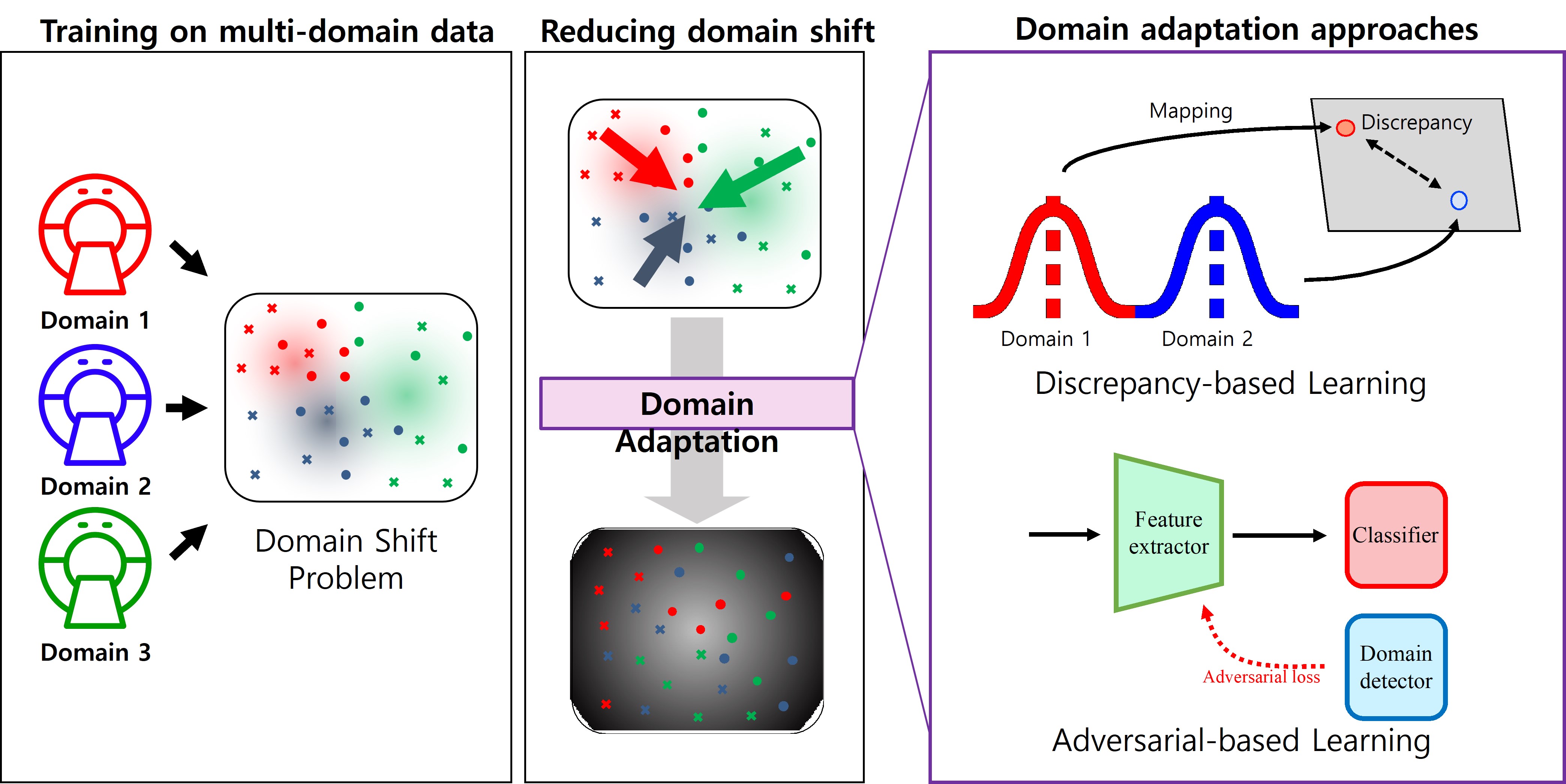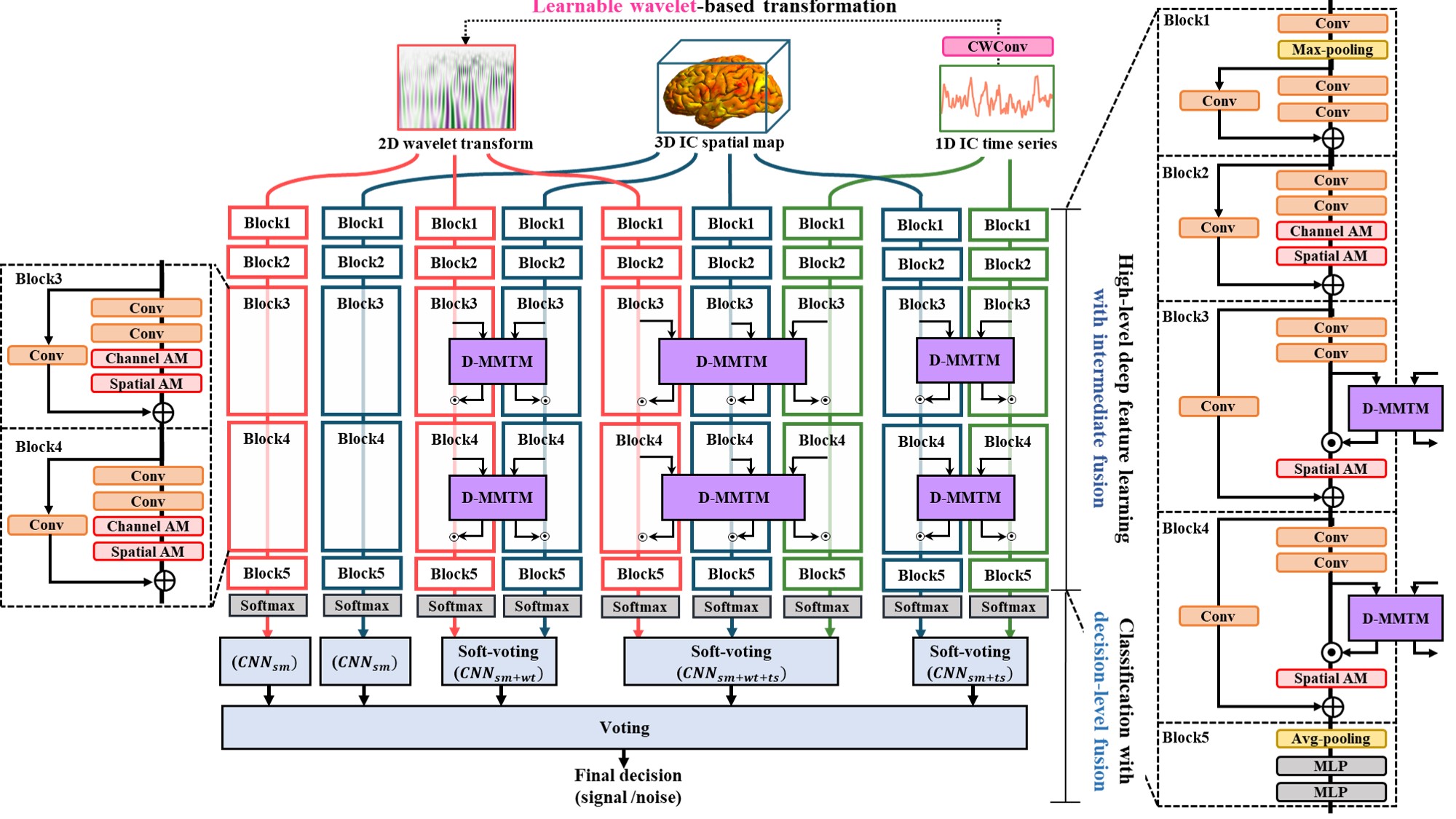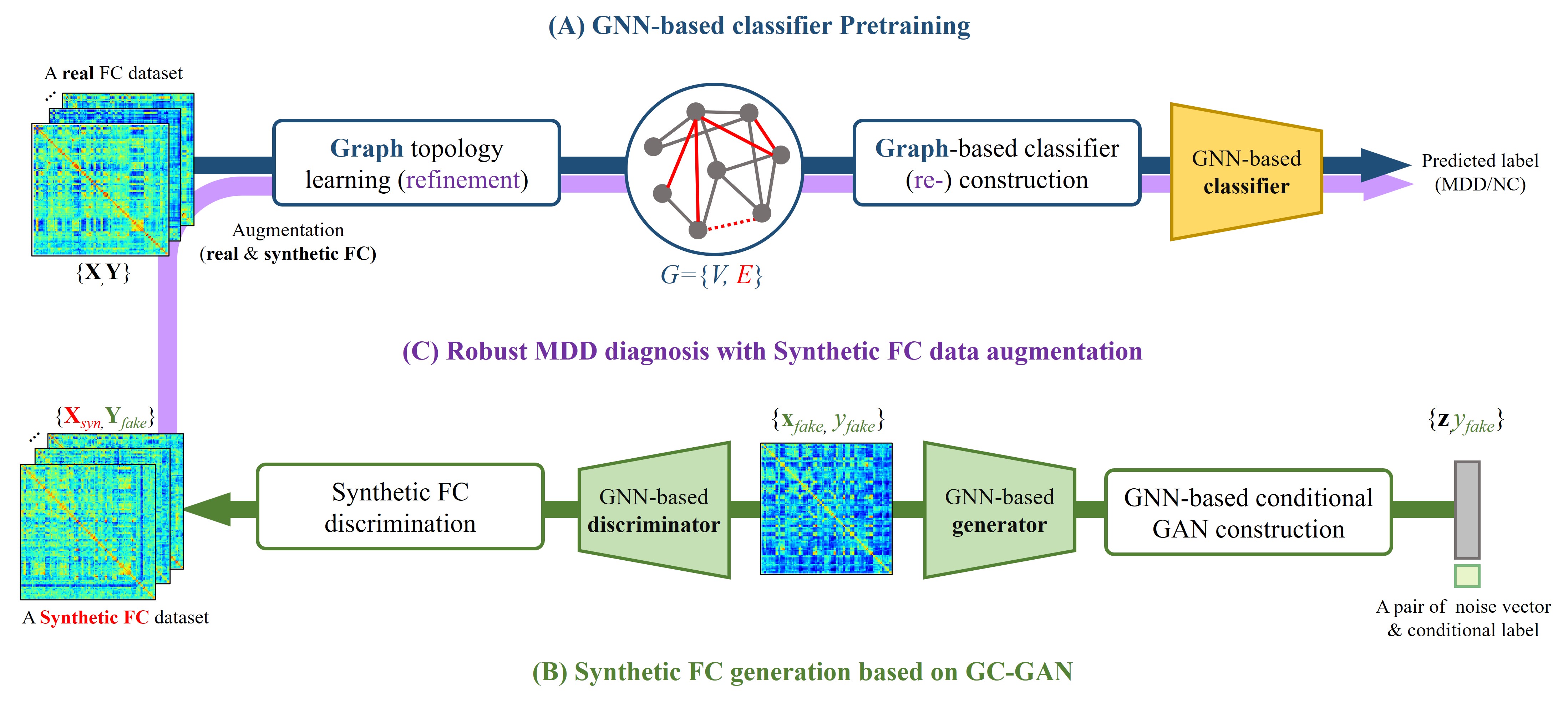Domain Adaptation
● Domain adaptation addresses the challenge of deploying models trained on one domain to another domain with different characteristics, such as scanner types, acquisition protocols, or patient demographics.
● To reduce the difference of domains, discrepancy-based approaches minimize feature distribution differences. Also, adversarial-based methods focus on learning domain-invariant features through adversarial training.

Multi-modality model fusion
● Our research discusses the challenges posed by noise and artifacts in resting-state functional magnetic resonance imaging (rs-fMRI) data analysis, which can negatively impact the results of studies involving functional brain networks.
● Our current research address this issue by proposing a comprehensive deep learning framework that combines spatial, spectral, and temporal features for improved noise-related component detection in rs-fMRI data.

Meta learning-based Cross-domain Generalization
● Our objective is to develop networks that can efficiently generalize across various domains, addressing the challenge posed by limited training data, particularly in the context of biomedical data.
● Our current research focuses on meta-learning-based few-shot domain generalization to handle data transitions between diverse domains more effectively.
● Our research aims to enhance the adaptability of deep-learning-based models across diverse domains, even with limited data, ensuring strong generalization performance and flexibility for new tasks.

Generative model-based Synthetic data augmentation
● Our objective is to effectively tackle the issue of data scarcity in the medical field by utilizing generative models to augment synthetic medical data.
● Our current research focuses on employing generative adversarial networks (GANs) to enhance synthetic functional connectivity (FC). This enriched FC data is integrated into the training dataset, leading to notable advancements in the diagnosis of brain diseases.
